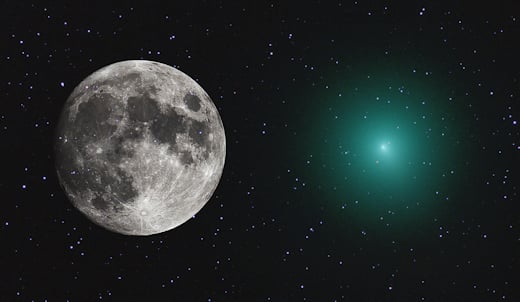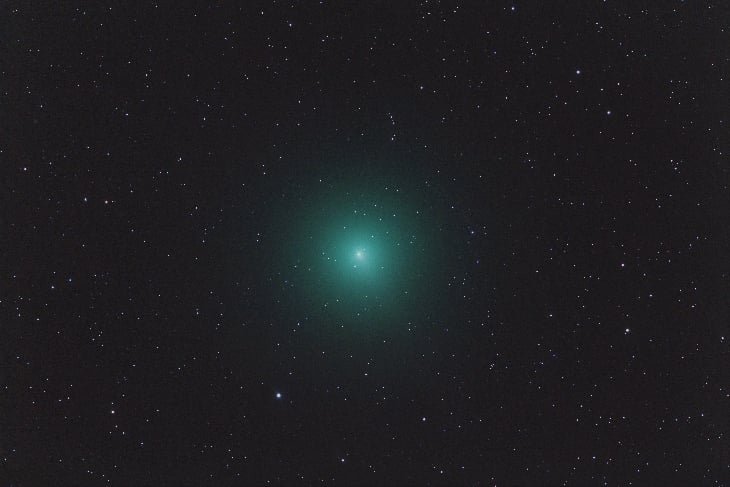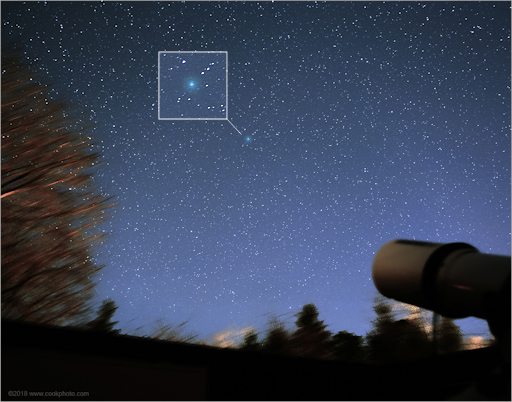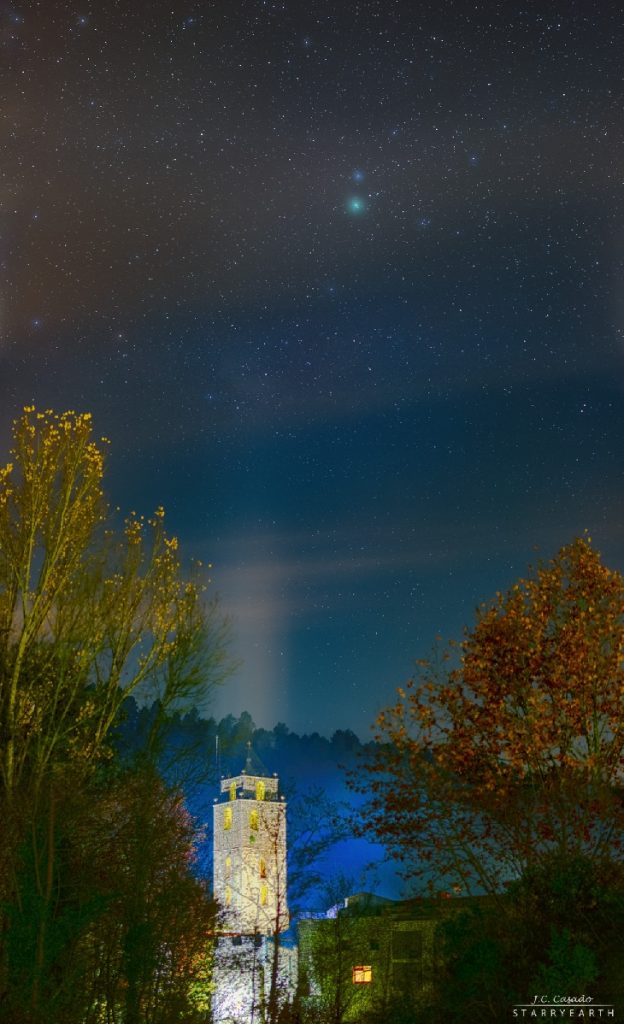On Dec. 16th, Comet 46P/Wirtanen will approach Earth less than 1.5 million km away–making it one of the 10 closest-approaching comets of the Space Age. It’s a small comet, with a nucleus barely 1 km wide, but such proximity makes even a small things appear large. The comet’s gaseous atmosphere is now as wide as a full Moon. Mike Broussard of Perry, Louisiana, photographed the comet on Dec. 2nd and inserted the Moon for scale:

“The comet still has a couple of weeks before closest approach and it is already as big as a full Moon,” says Broussard, who could see the comet with his naked eye–“just barely using averted vision and only when it was in the darkest section of the sky,” he adds.

Despite its close approach, 46P/Wirtanen will never become a Great Comet like Comet Hayakutake in 1996 or Comet Hale-Bopp in 1997. Wirtanen’s relatively small core of dirty ice cannot produce enough gas and dust to create a really bright, flamboyant tail. The best case scenario is probably a big diffuse cloud of magnitude +3 or +4, barely visible to the unaided eye but an easy target for binoculars and small wide-field telescopes.
Last night in Cape Cod, Massachusetts, photographer Chris Cook didn’t even need a telescope to capture Wirtanen’s green glow. He took this picture using a Canon 6D digital camera with a 35 mm lens:

“This was my first sighting of Comet 46P/Wirtanen–just under naked eye visibility for my skies, but in 7×50 binoculars I could see a very large coma (ball of gas) almost 1° in diameter! It reminds me of Comet Hayakutake’s massive coma but not nearly as bright.” reports Cook.”
Celebrated astrophotographer Juan Carlos Casado, who last night took his own HDR image of the comet above a church tower in Spain, offers some advice to novices: “Use Raw file format, a fast lens (at least f/2.8) and ISO settings between 1600 and 3200. The exposure will depend on the focal length. I normally use the 500 rule–that is, exposure = 500 / focal (mm) with a tripod. It also helps in areas with light pollution to use an antipollution filter. I am now using Optolong L-Pro clip filter which gives excellent color balance.”

On the nights of closest approach, 46P/Wirtanen can be found in the constellation Taurus rising in the east at sunset and high in the sky at midnight. Sky watchers in the northern hemisphere may orient themselves using these sky maps: Dec. 5, Dec. 6, Dec. 7, Dec. 8, Dec. 9, Dec. 10, Dec. 11, Dec. 12, Dec. 13, Dec. 14, Dec. 15, Dec. 16













Like and follow the Comet 46P/Wirtanen Facebook page: https://www.facebook.com/46PWirtanen/